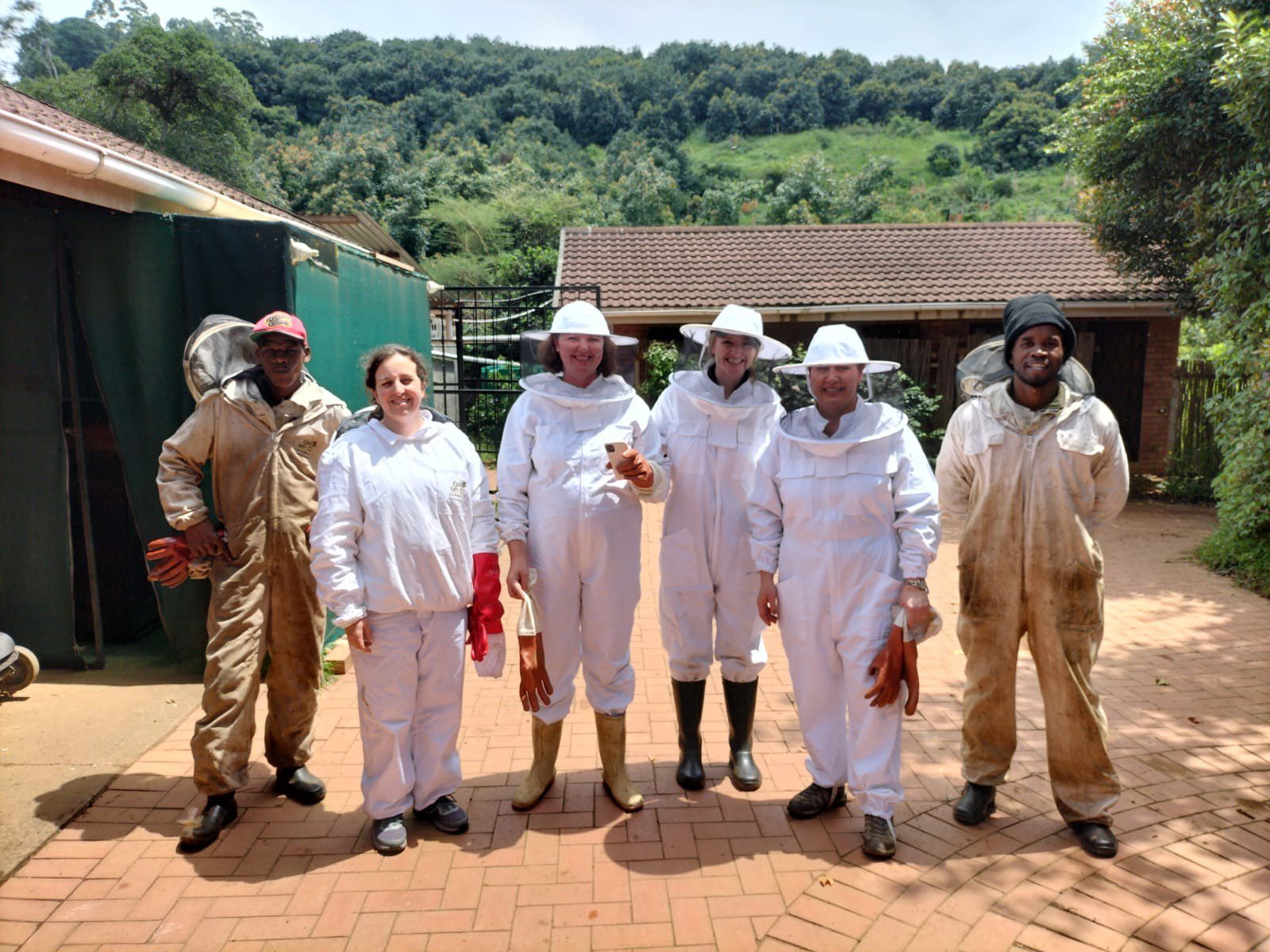To combat such challenges, an innovative project, funded by the Foreign, Commonwealth & Development Office (FCDO)’s Frontier Technology Livestreaming fund is underway to explore the potential of utilising internet-of-things (IoT) technology in revolutionising the beekeeping industry in South Africa. The CHAP led project is a collaboration with Agrisound, a UK-based pollination management technology company, and Cropimpi, a South-Africa-based R&D organisation.
One of the main objectives is to provide beekeepers with real-time data from in-hive sensors. This will empower them with valuable insights into key metrics including colony acoustics, temperature, humidity, plus light and motion sensors to detect potential hive theft.
This pioneering agri-tech project is set to improve beekeeping practices and harness economic opportunities for underserved groups in South Africa’s KwaZulu Natal and Western Cape provinces. The aim is to adapt and implement existing UK technology and utilising its potential to increase productivity and create a viable income source within the beekeeping sector.
During this international pilot project, data will be gathered from two South African provinces to determine whether there are any variations in optimal behaviours and hive conditions for two different bee species, the African honeybee and Capensis bee.
In the first phase of the project which ran from January to March 2023, the team focused on the KwaZulu Natal province – home to the African honeybee species. The team identified and selected 25 participants from diverse backgrounds across the KwaZulu Natal province. Overall, the participants’ ages ranged from 19 to 80 years old, with a gender split of approximately 60% male to 40% female, and 12% of the participants identified themselves as having a disability.
As part of the project, a comprehensive set of online training modules were created and provided to the participating beekeepers. They addressed a series of subject topics such as hive health, installation, components and beekeeping tips. The training materials were designed based on insights collected from an initial participant onboarding survey which focused on questions around beekeeping skills, prior experience and knowledge, and methods of generating income from apiculture. After finalising the training, participants completed an assessment, which recorded a 100% completion rate and had an average score of 80%. The data from the onboarding survey and quiz will serve as a valuable baseline as further surveys in the coming months will assess whether the devices have boosted hive production and business profitability.
As part of the project’s initial phase, 100 AgriSound in-hive sensors were allocated to the 25 participating beekeepers, strategically positioned across different locations within the KwaZulu Natal province. To ensure proper functionality of the IoT devices, preliminary tests were conducted to assess the 3G/4G connectivity in each location, followed by the installation of wireless sensors and Gateway Units.
Crucial assumptions were successfully validated, such as the demand for improved beekeeping practices across diverse user groups and locations. It was also confirmed that 3G/4G connectivity adequately supports the functioning of IoT devices in different locations. Valuable lessons were learned regarding device installation, user training, and the need to tailor training materials to maximise effectiveness and engagement.
For the next phase of the project, the team will continue gathering data from in-hive sensor devices in KwaZulu Natal, while simultaneously expanding the reach of the project to the Western Cape province where the Capensis bee resides. It is hoped that data on potential variations in bee behaviours and hive conditions across different species and regions will reveal further insights. Additionally, a new questionnaire has been developed to collect feedback on technology usage, profitability and harvesting.
In this next phase of the project, the team will also host knowledge dissemination events in both Cape Town (Western Cape province) and at the Honey Festival in KwaZulu Natal. The materials presented will feature technology showcases, project overviews, initial key findings and participant case studies.
To find out more about this project, contact CHAP at enquiries@chap-solutions.co.uk or visit www.chap-solutions.co.uk












